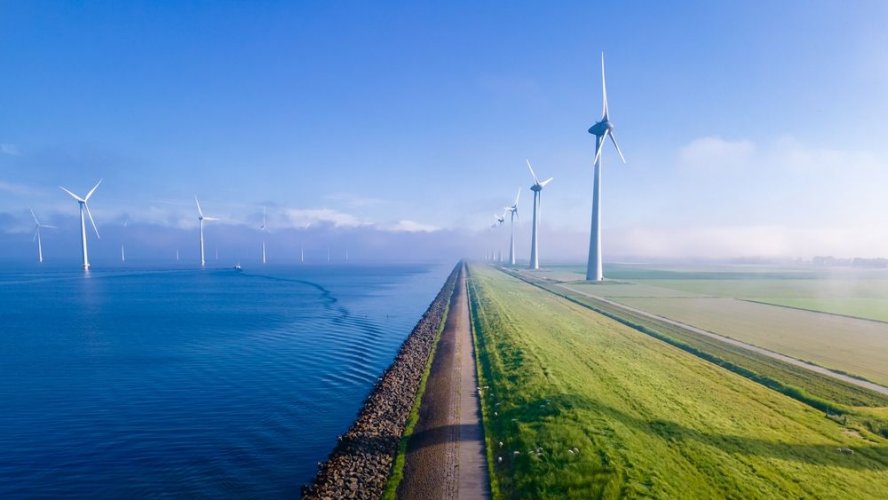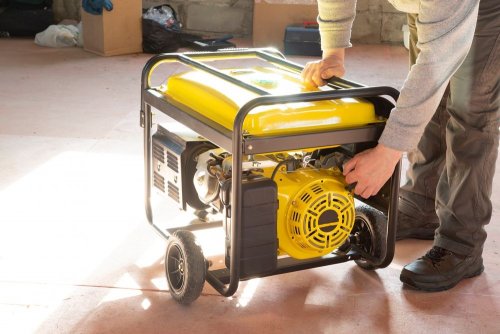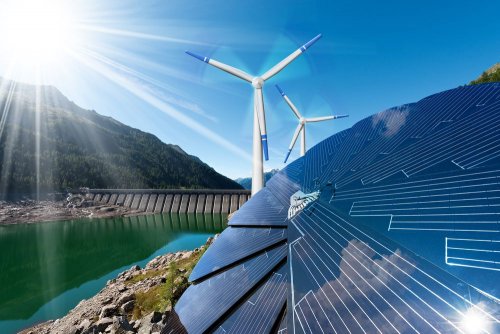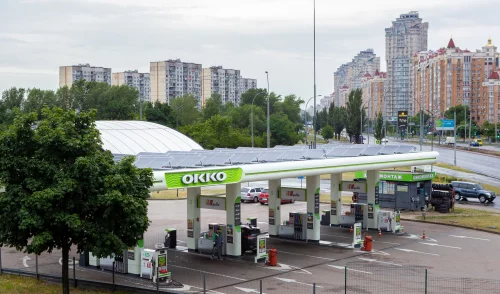Having occupied the south of Ukraine, Russia has gained the lion's share of the country's green energy sector, including some of Europe's largest solar and wind power plants with a capacity of hundreds of megawatts.
This is stated in the material of the Center for Investigative Journalism (CIJ).
The Center's analysts have marked on a Google map the green energy facilities that Ukraine has lost due to the occupation of the southern regions. They also marked solar power plants (SPPs) damaged by the hostilities. In total, these are 10 locations in Zaporizhzhia and Kherson regions.
Journalists cited data announced in October 2022 by the Ukrainian Minister of Energy Herman Galushchenko. He said that Ukraine has lost 90% of wind energy and 45-50% of solar generation. But the members of the Central Committee of Ukraine emphasized that the losses are actually even greater, since it is necessary to take into account the wind and solar plants in the occupied Crimea, which the Ukrainian energy system lost in 2014.
The current state of captured SES
According to the investigation data, two SES from the top 10 largest in Ukraine and Eastern Europe were under occupation. One of them – Tokmak Solar Energy has a capacity of 50 MW, occupies more than 96 hectares on the outskirts of Tokmak and has been operating since 2018. According to the information of one of its co-owners, Oleksandr Repkin, the station was damaged by shelling from the Russian "Grad" and other weapons, so it lost about 20% of its power.
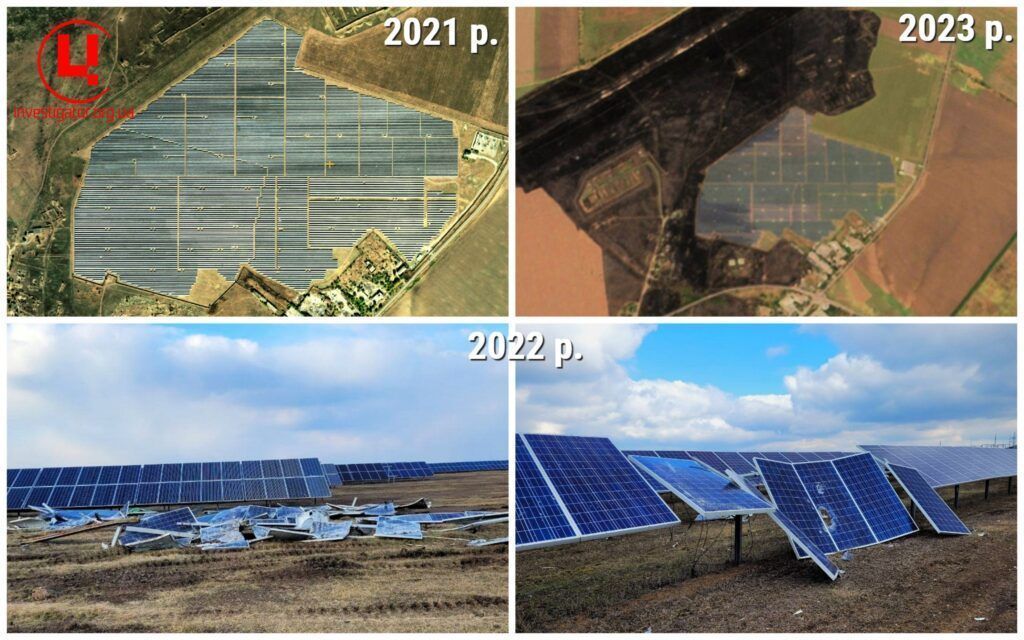
Satellite images of the Tokmak Solar Energy SPP and photos of damage to the facility in the spring of 2022. Photo: social networks, Maxar Sentinel-2 satellites. Collage: investigator.org.ua
Another solar power plant of this company in the village of According to the analysis of satellite images, Nova, 10 km from Tokmak, has significant damage, and the area around it is gradually turning into a burnt area.
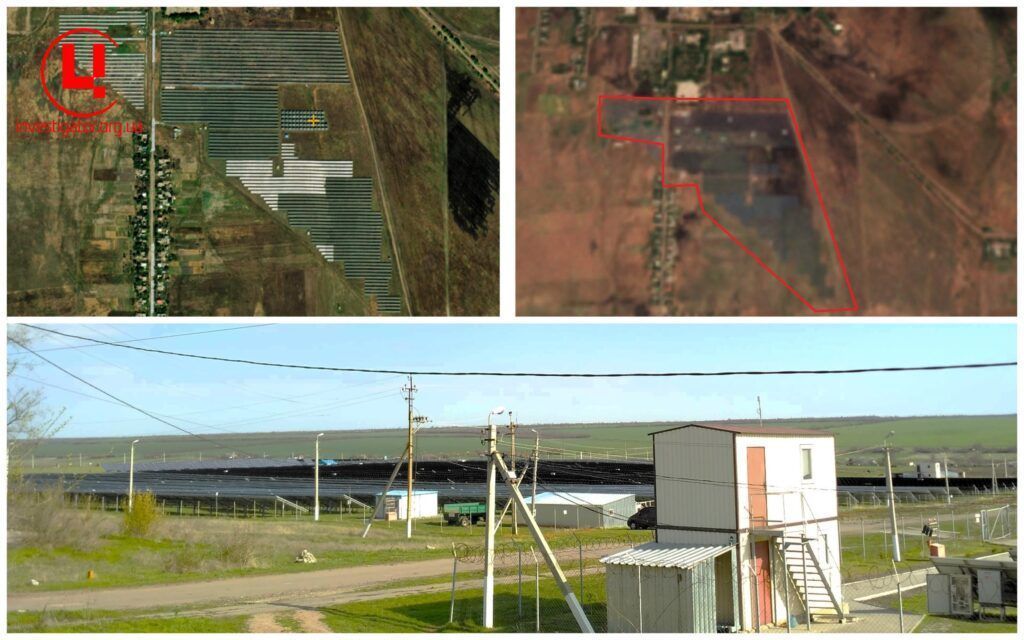
Solar power plant in the village New 2021 and as of July 2024 (right). Photo: Google Maps, Maxar satellites, Sentinel-2. Collage: investigator.org.ua
Other objects in the Russian-captured part of Zaporozhye appear intact from space.
According to official data, the occupation authorities of the Zaporizhia region restored the operation of only two SESs: in Yakymivka (in April this year) and in Melitopol (in July). Their total capacity before full-scale war was just under 60 MW.
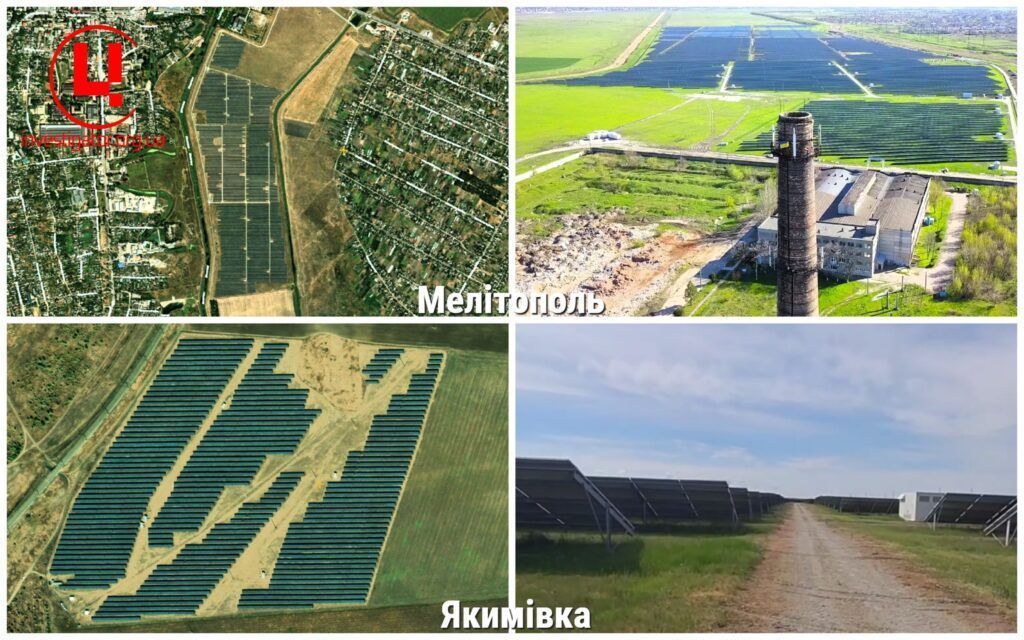
Heliostation in Melitopol and Yakymivka at TOT of Zaporizhzhya region. Photo: Google Maps, Maxar satellites. Collage: investigator.org.ua
The journalists state that there is no information about the exact number of surviving solar stations in the Kherson region and their technical condition. However, in the pictures from space, you can see the damage to the SPP near the village. Kostogrizove and Vynohradove of Oleshkiv district.
"The same fate apparently befell the SES in the village of Mala Lepetikha, which is also located on the left bank of the Dnieper. The burn from the last fire on the territory of the station was recorded on July 17," says the Central Railway.
The fate of the Oleshkivskaya SES is even sadder: almost 30 hectares of solar panels between the village of Pidstepne and Oleshky were completely destroyed, and another 80 hectares on the outskirts of the city itself. Before the war, this solar power plant had a capacity of 16 MW.
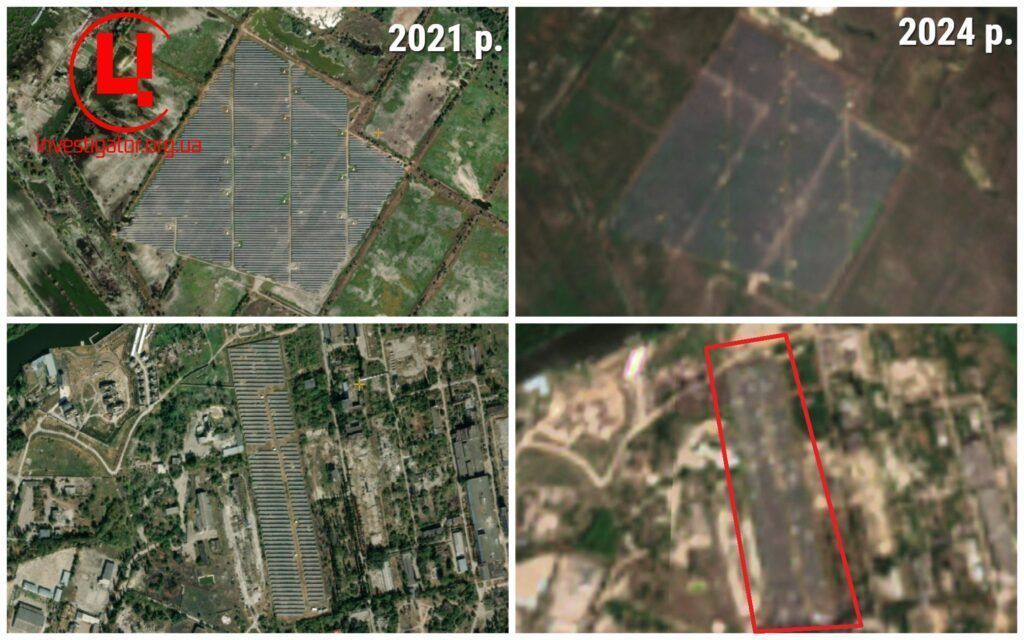
SPP in Oleshki at the TOT of the Kherson region. Photo: Maxar, Sentinel-2 satellites. Collage: investigator.org.ua
Investigators say that in other coastal settlements of the Left Bank, such as Tavriysk, Kakhovka and Nova Kakhovka, and further upstream of the Dnieper in the villages of Lyubimivka, Sofiivka, Vasylivka, renewable energy facilities were not affected at first glance.
How are the occupied wind farms?
After the start of the full-scale invasion, DTEK stopped the operation of all three of its wind farms in the south of the country: Botievska, Orlivska, and Primorska.
In the spring of 2023, the occupiers announced the launch of windmills in Botievo. On the territory of this wind power plant, the occupiers set up a training ground with obstacle lines, fortifications and a shooting range.
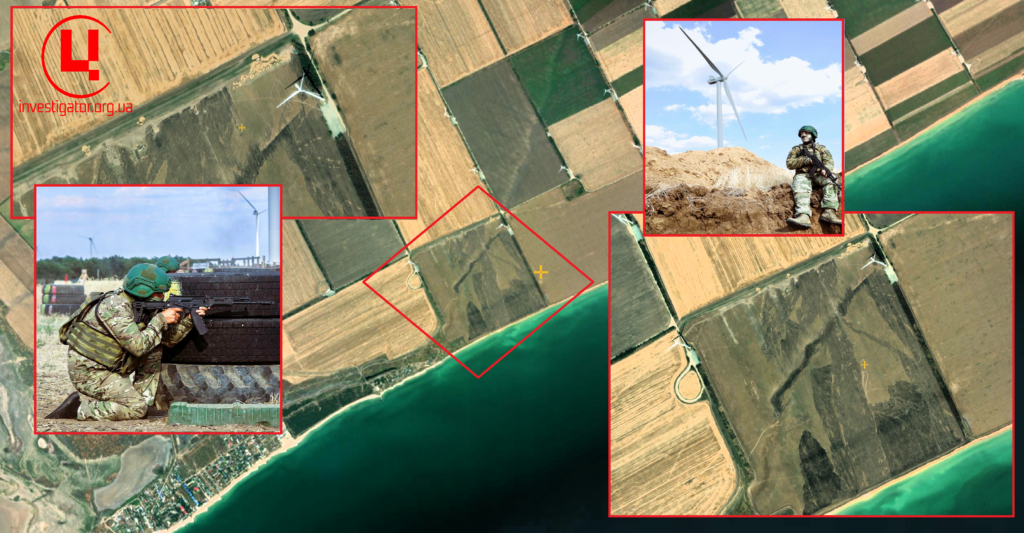
The occupiers' training ground on the territory of Botievska VES in 2023. Photo: Maxar satellites, social networks. Collage: investigator.org.ua
In August of last year, the invaders launched the Primorska wind farm, damaging 2 wind turbines.
The Russians also "squeezed" 200 turbines from the companies of the "Windkraft" group of the Swedish businessman Karl Sturen. This network of windmills stretches from east to west along the shores of Lake Sivash across the entire isthmus between Crimea and mainland Ukraine and further west along the Black Sea coast to Skadovsk.
According to the Central Committee of the Russian Federation, renewable energy in the occupied south is controlled by PJSC "Rosseti", and all electricity generated on the stolen equipment of Ukrainian companies is supplied to the unified network of Russia. Journalists casually reminded that the general director of the joint-stock company "Rosseti" is Andrey Ryumin, the son-in-law of the traitor Viktor Medvedchuk.
At the beginning of June, EkoPolitika told about the additional capacity will give newly built wind turbines to the energy system.
In May, we provided expert analysis on how war changes scale and geography of Ukrainian solar generation facilities.
Also in June, EсoPolitic reported that the German the Goldbeck Solar company will build 500 MW of solar energy in Ukraine.

